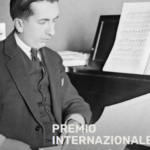16 Gen “Music – Musicology – Interpretation”. XV International Conference of the Department of Musicology (Belgrado, 22-24 ottobre, 2020)
The Department of Musicology of the Faculty of Music, University of Arts in Belgrade, is pleased to announce its Fifteenth International Conference on the topic Music– Musicology–Interpretation.
The subject of the conference Music-Musicology-Interpretation focuses on the complex and multifaceted relationships between the constituent concepts. It proposes to re- examine these multiple relations by thematizing, from the point of view of interpretation, music as language, discourse, work of art and text, the performance of music and the discourse on music – musicology itself.
Musical hermeneutics as a discipline is today the focus of musicological interest. During the last three decades of the 20th century, it developed in parallel with research into musical semiotics and, as the influence of “pure” structural analysis was waning, it became an important current of thought about music at the beginning of the 21st century. Its renewal in relation to the legacy of the 19th century was partly due to interpretive criticism in Anglo-Saxon literature but also to the works of Carl Dahlhaus in the 1970s and 1980s. Next come researchers into hermeneutics and interpretive criticism and analysis, each with a different orientation in their individual pathways and objects of study, most of whom are still active today: Joseph Kerman, Nicholas Cook, Leo Treitler, Lawrence Kramer, Robert Hatten, Eero Tarasti, Jean-Jacques Nattiez, Michel Imberty, Bernard Vecchione, Christian Hauer, Makis Solomos…
In his Peri Hermeneias, Aristotle established an equality between “sounds emitted by the voice” and symbolic language, that is, meaningful language: “The sounds emitted by the voice are the symbols of the states of the soul, and the written words the symbols of words emitted by the voice” (Peri Hermeneias, 1 / 16a /). Being symbolic, signifying language is thus equated with interpretive language, mediating the relation of the transmitter “of the voice” to the things of the world, with the written language then constituted as a double mediation: of the spoken language and the things themselves. This chain of consecutive “interpretations-appropriations” (Ricœur, From Text to Action, 1986) thus recalls a chain of musical interpretations: the things of the world (the world of life, being-in-the-world) – the music (discourse, work of art, text) – the performance of music – the discourse on music, projecting, through the hermeneutical arc, into a new being-in-the-world, as an understanding of oneself in front of signs (Ricœur, ibid).
This chain allows us to problematize the relationship between music, discourse on music and interpretation on several levels.
At the methodological level, it enables us to re-examine the position of musicological interpretive criticism in relation to primary research, technical analysis and structural explanation, on the one hand, and the “new musicology”, on the other, and, at the disciplinary level, to re-examine the position of and relationship between musical hermeneutics and structuralism, as well as semiotics. In both cases, the question can be raised as to whether the structural explanation of the musical work or the explanation of the signs of culture, on the one hand, and interpretation, on the other, are mutually exclusive, or whether a methodological reconciliation is possible in the sense of the mediating role of explanation in the process of understanding, explanation and understanding being integrated into the interpretive chain.
At the poetic level, it allows us to reopen the question of the interpretive character of the musical work/discourse/text itself as the “voice emitted”, thus already the symbolic voice, and then to reproblematize the relationship between musical language and meaning, reference, representation, narrativity and time. In this sense, another question can be posed, namely how the specific abilities of music can help shed light on the interpretive process and the contemporary hermeneutical task in general. Also related to this is the problematics of the historicity of musical hermeneutics / musical interpretation, as well as the problematics of the interpretive discourse on music in history and as history. The issue of the subjectivity and objectivity of the discourse on music and music itself is part of the old debate but it lends itself to reconsideration in relation to music as a “thing” (L. Kramer) and the work of interpretation as event, action, dynamism, creation, production. The notion of metaphor, extracted as a key concept in different conceptualizations by many authors, musicologists and philosophers, is also proposed for examination: as a musical metaphor (at the poetic level) and as a metaphor in the discourse on music.









